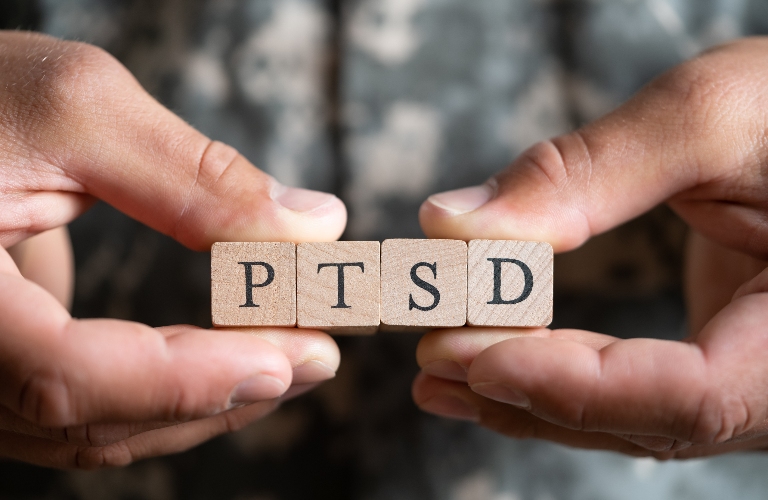
At Tabak Law, we understand that every case has a real person behind it who is facing a difficult situation, whether it’s due to a disability, an injury, or some other life-altering challenge. Our goal is simple: to help our clients move from hardship to hope, providing results with compassion, integrity, and exceptional legal expertise. With nearly $300 million in recoveries and more than 10,000 satisfied clients, we are proud to stand up for those who rely on us, especially those struggling with invisible injuries such as post-traumatic stress disorder (PTSD).
Can You Qualify for SSDI with PTSD?
Yes, if your PTSD is severe enough to qualify as a disability according to the Social Security Administration’s (SSA) standards, you may be eligible for Social Security Disability Insurance (SSDI). While the SSA does not automatically rule out mental health conditions such as PTSD, they are specifically listed under Section 12.15 of the SSA’s Listing of Impairments, also known as the Blue Book. This section covers trauma- and stressor-related disorders.
To qualify, your PTSD must cause “extreme” difficulty in one area or “marked” difficulty in two of the following areas of mental functioning:
- Understanding, remembering, or using information
- Interacting with others
- Concentrating, persevering, or maintaining pace
- Adapting or managing yourself
Additionally, your condition must be “serious and persistent,” meaning that you’ve been medically documented with ongoing treatment for at least two years with marginal adjustment, meaning you have limited capacity to adapt to changes in your environment or demands that are not already part of your daily routine.
Who Is Eligible? Veterans, First Responders, and Civilian Workers Alike
PTSD doesn’t discriminate and can affect anyone who has experienced traumatic events. This includes veterans returning from combat, police officers and firefighters, healthcare workers who work in high-stress environments, as well as office workers who have survived workplace violence or harassment.
The Social Security Administration (SSA) evaluates all applicants based on the same medical and non-medical criteria. However, veterans may have additional advantages:
- VA (Veterans Affairs) disability ratings do not automatically qualify you for Supplemental Security Income (SSDI), but they can be used as strong supporting evidence.
- The SSA gives “special consideration” to veterans with 100% permanent and total (P&T) VA disability ratings under its partnership program with the VA.
- Veterans can benefit from expedited processing through the Wounded Warrior Program if they become disabled while serving on active duty after October 1, 2001.
Medical Evidence Is Everything
Unlike physical injuries, PTSD can be “invisible”. That’s why documented medical evidence is crucial. The Social Security Administration will review:
- A diagnosis from a licensed psychiatrist or psychologist.
- The treatment history (therapy, medication, hospitalization).
- Clinical notes detailing the symptoms (flashbacks, hypervigilance, panic attacks, social withdrawal).
- Statements from family, employers, or therapists.
- Results of psychological tests (MMPI, PTSD checklist, etc.).
Your Residual Functional Capacity (RFC) will be assessed. This determines what type of work you are still able to perform, if any. If your PTSD prevents you from maintaining focus, managing stress, showing up regularly or interacting appropriately with colleagues or the public, you may be considered disabled under SSA regulations.
Non-Medical Requirements: Work Credits and Financial Eligibility
SSDI is not a welfare program – it’s insurance that you pay into through your payroll taxes. To qualify, you need to have earned enough work credits, usually by working for five of the last ten years before becoming disabled. The exact number of credits required depends on your age.

On the other hand, SSI (Supplemental Security Income) is a needs-based program available to people with limited income and assets, even if they haven’t worked enough to qualify for SSDI. They can apply for both programs at once.
Why Most PTSD Claims Are Initially Denied — And How to Win on Appeal
Over 60% of initial SSDI applications are denied – and PTSD claims are particularly vulnerable because symptoms are subjective and can fluctuate. Some common reasons for denial include:
- Insufficient medical documentation.
- Failure to demonstrate the duration of the condition (it must last or be expected to last for 12 months or more).
- SSA’s belief that you can perform “other work” despite your limitations.
You Don’t Have to Fight This Battle Alone
Whether you’re a veteran struggling with combat memories, a nurse recovering from ICU trauma, or an office worker recovering from an assault, your PTSD is real and your disability deserves recognition.
At Tabak Law, we’ve helped countless clients like you get the benefits they deserve. We understand the system and speak the language of the Social Security Administration, and we fight for you with compassion and determination. Call us today for a free consultation. Let’s turn your challenges into hope.
